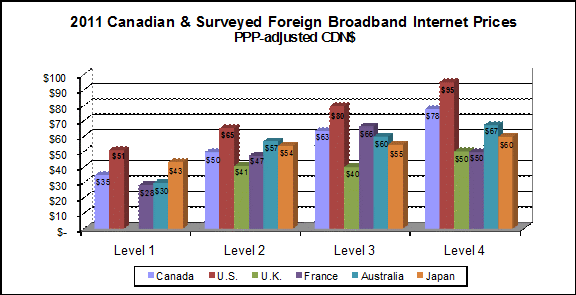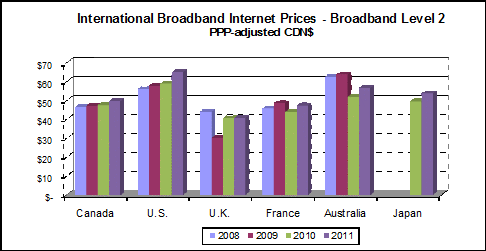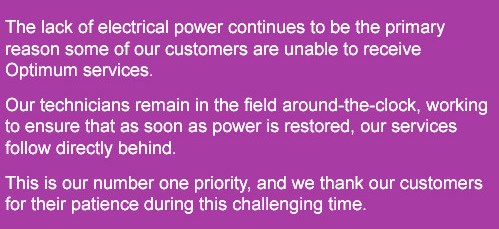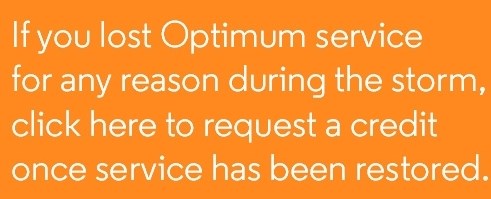As much as 90 percent of your monthly broadband bill represents pure gross profit for your phone or cable provider, according to the Wall Street Journal:
Cable executives and analysts say that about 90% of the money cable operators charge for broadband goes straight to gross profits, since there are minimal operational costs for providing Internet service.
Most of the expenses incurred by cable operators that today dominate the broadband market came from cable system upgrades that began in the early 1990s to accommodate the introduction of digital cable television and other services like digital cable radio, expanded pay-per-view and on-demand features, home security, telephone service, and the launch of cable broadband.
Most of those upgrades were paid off years ago, and the costs of bandwidth and network upgrades to handle increased data demands are proving to be both incidental and declining.
What has not declined is the price consumers pay for service.
Among Canada, the USA, Japan, the United Kingdom, France and Australia, Americans pay the highest prices and are seeing the largest rate increases for Internet access, especially after 2011, according to the Canadian Radio-television and Telecommunications Commission which tracks global broadband pricing.


 Subscribe
Subscribe








